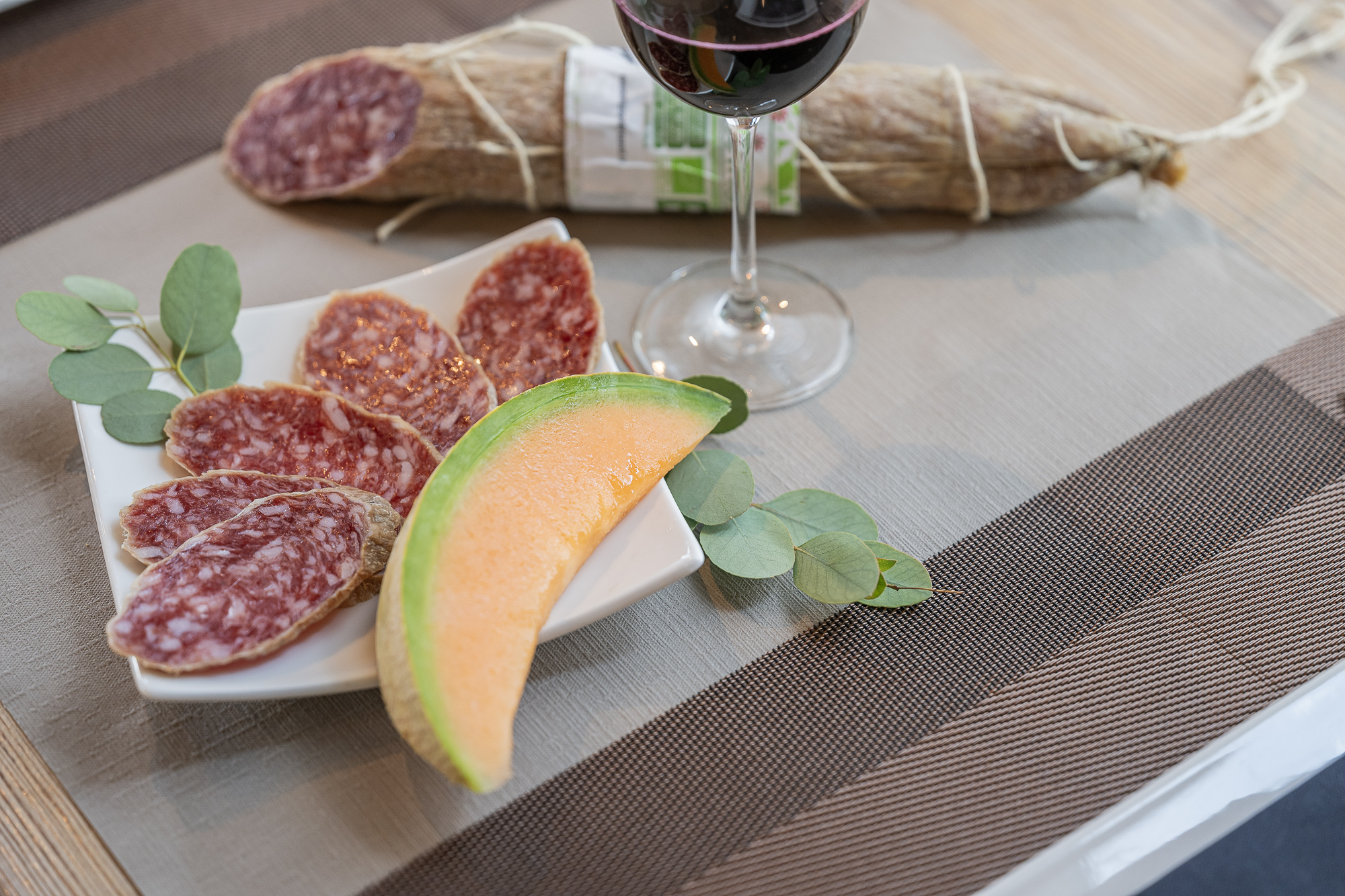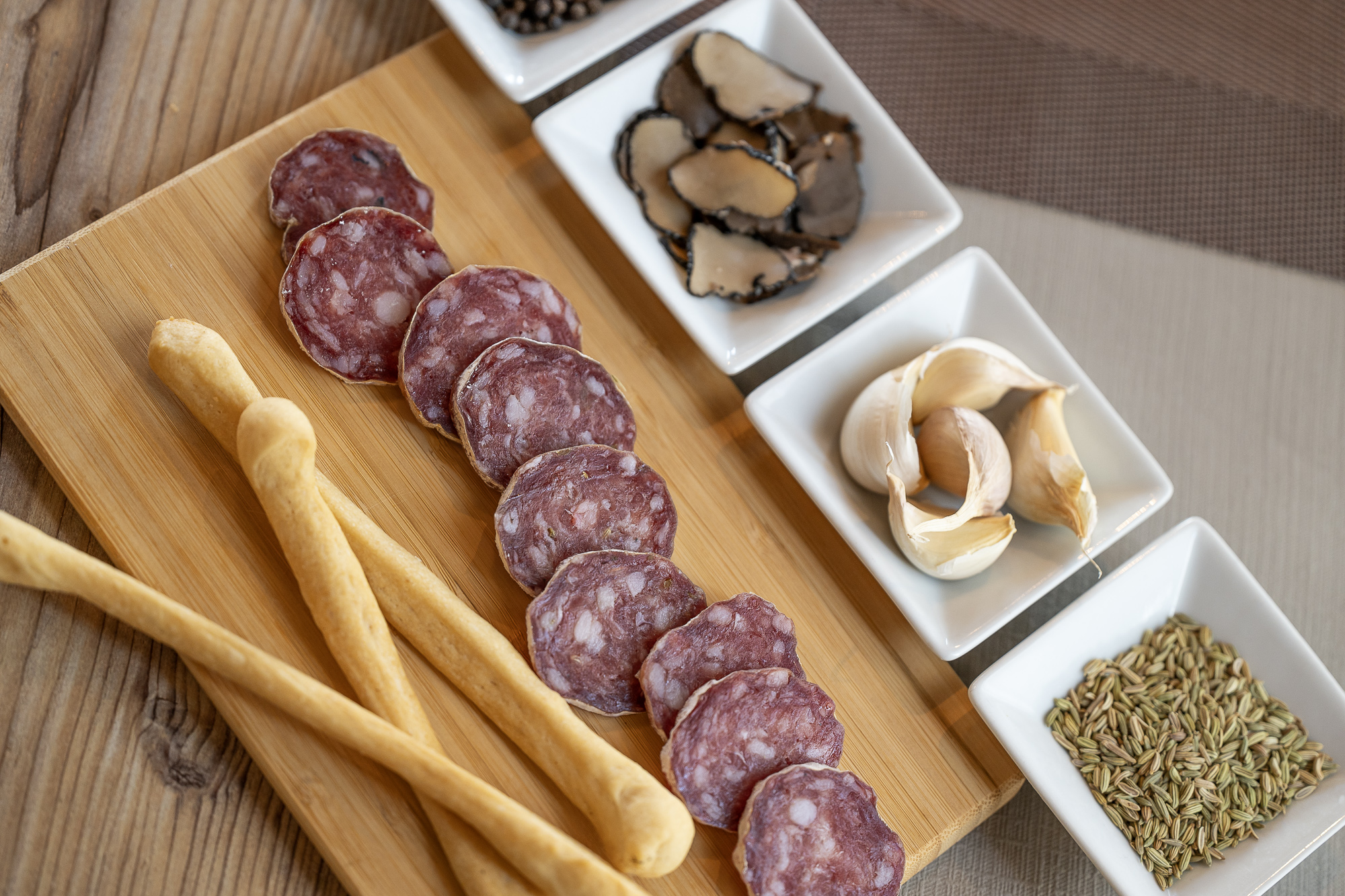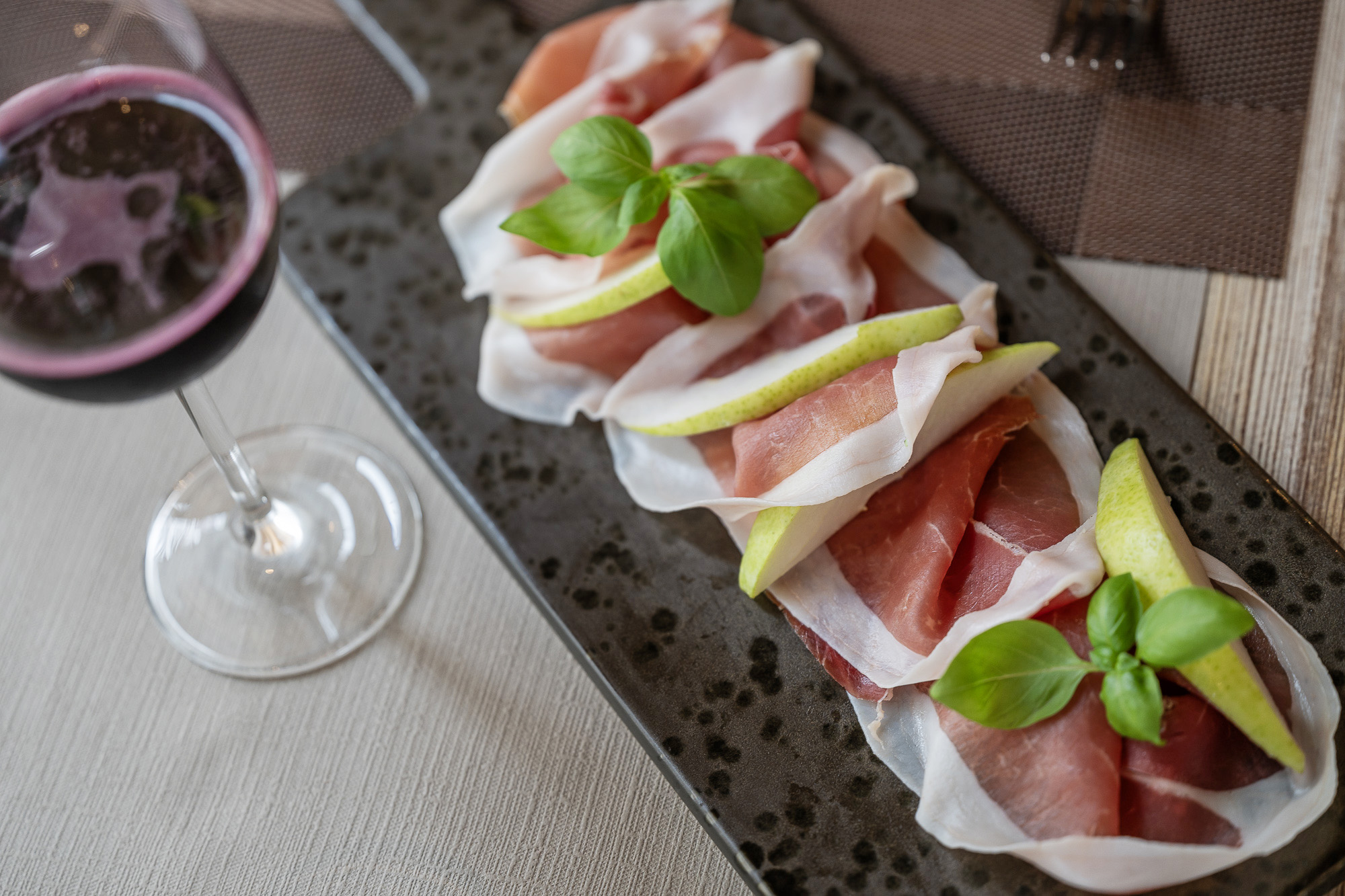Organic Cooked Ham – High Quality: an ancient art, renewed
In the kitchens of ancient Rome, among scents of bay leaves and dried figs, a culinary art was born that would last through the ages. As legionaries traveled among peoples and cultures, they learned and refined what would become one of the noblest Italian food traditions: cooked ham. From that ancient recipe – which involved boiling with dried figs and bay leaves, coating with honey, and baking in a crust – to our modern methods, the journey has been long, but the essence remains intact.
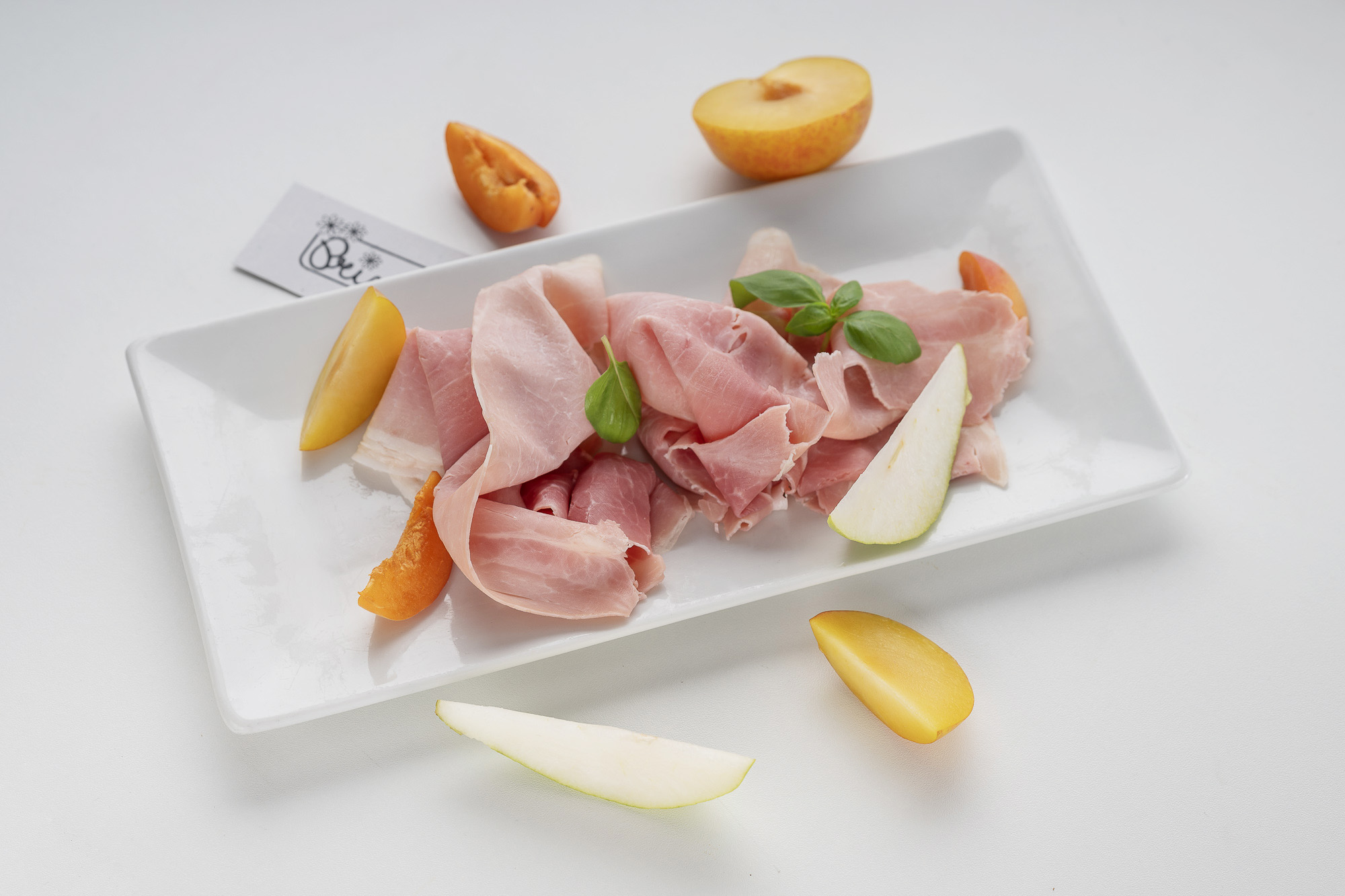
HOW OUR ORGANIC COOKED HAM IS MADE
Our Primavera High-Quality Organic Cooked Ham fits into this millennia-old tradition, carrying the legacy of Italian regions renowned for their excellence in this craft: Friuli Venezia Giulia, Lombardy, Piedmont, Liguria, and Emilia-Romagna. A heritage of knowledge renewed through the purity of organic farming.
The raw material is premium: we use heavy organic pork legs (over 15 kg). Each leg is precisely cut at the femur, with the foot removed and carefully deboned by sliding the bone out to preserve the muscle fiber integrity. This respectful treatment of the meat is essential to maintain its organoleptic qualities.
In every slice of our High-Quality Organic Cooked Ham, ancient history and modern vision come together—tradition and innovation in a culinary dialogue that celebrates true Italian excellence, mindful of both taste and nature.
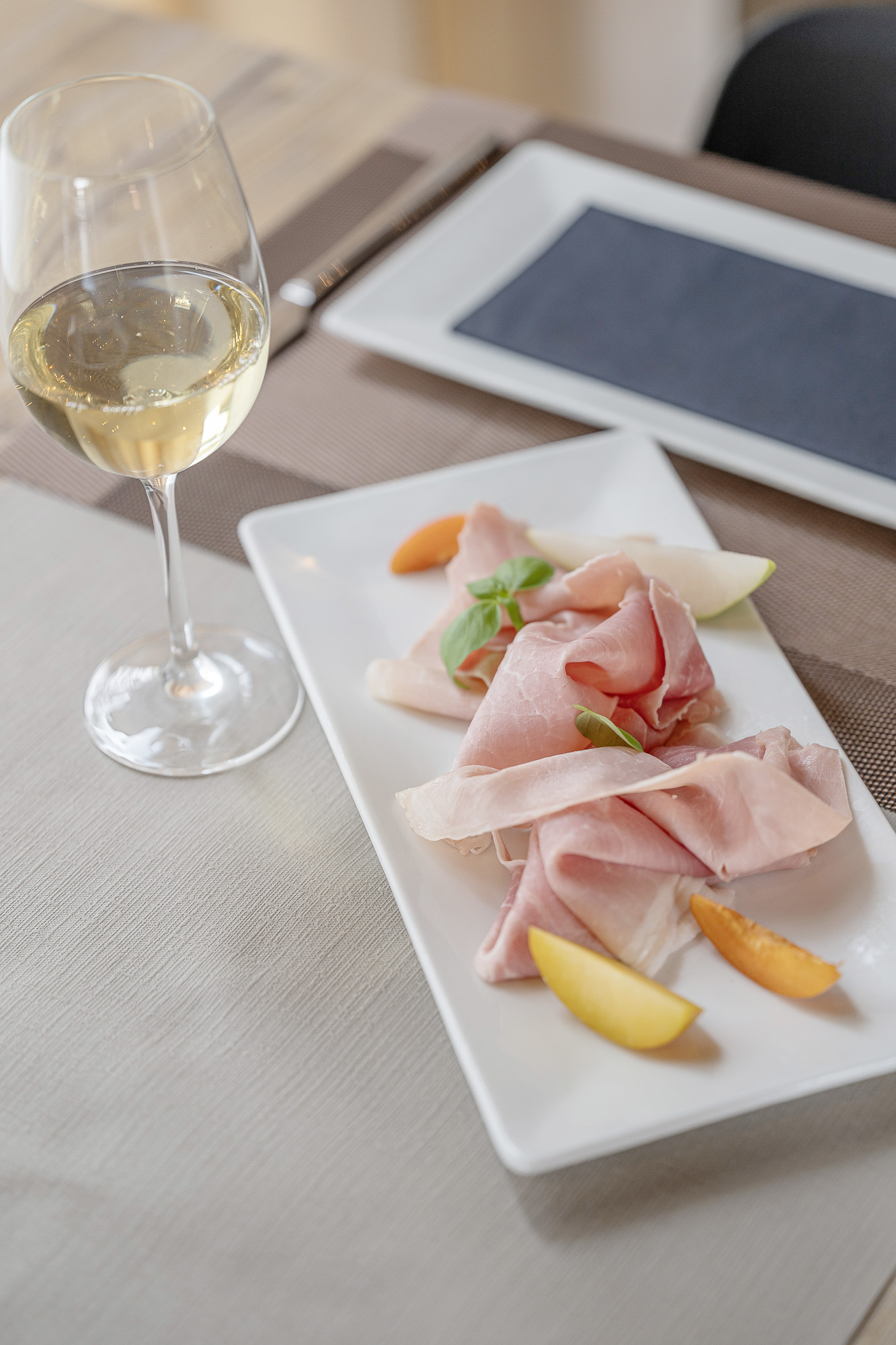
PRODUCTION AND PAIRING
The Cotto Nazionale, after preparation, is placed in special molds that give it its classic pressed pear shape—an icon of Italian tradition.
Cooking is done with steam—a gentle method that preserves the flavor and nutritional properties of the meat. After slow, low-temperature cooking (around 12 hours), the hams are allowed to cool naturally before packaging, letting the flavors settle and harmonize.
The result is a cooked ham with a uniform rosy color, releasing a delicate and inviting aroma. On the palate, it reveals a flavor perfectly balanced between sweetness and saltiness, with a soft yet compact texture that reflects the quality of the raw material and the care of the process.
This gastronomic masterpiece pairs beautifully with structured rosé wines like Alezio from Puglia, or fresh young reds like Grignolino d’Asti or Grignolino del Monferrato Casalese, which complement its flavor profile without overpowering it.

